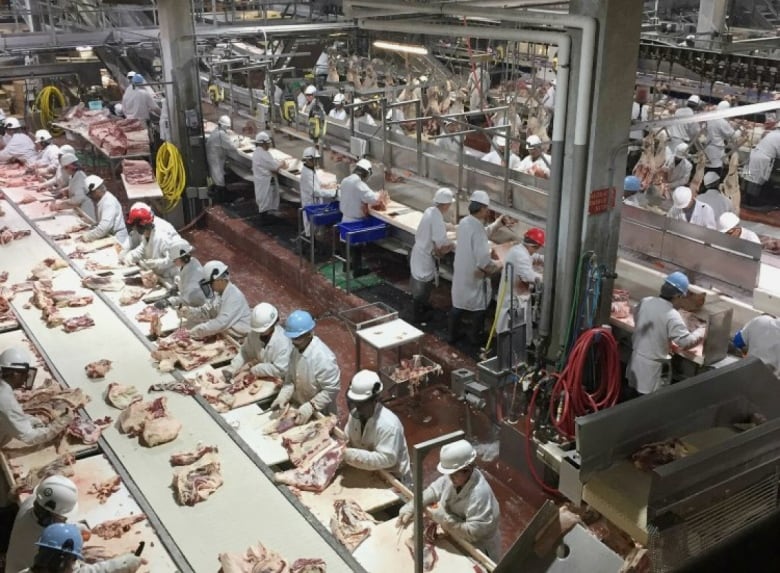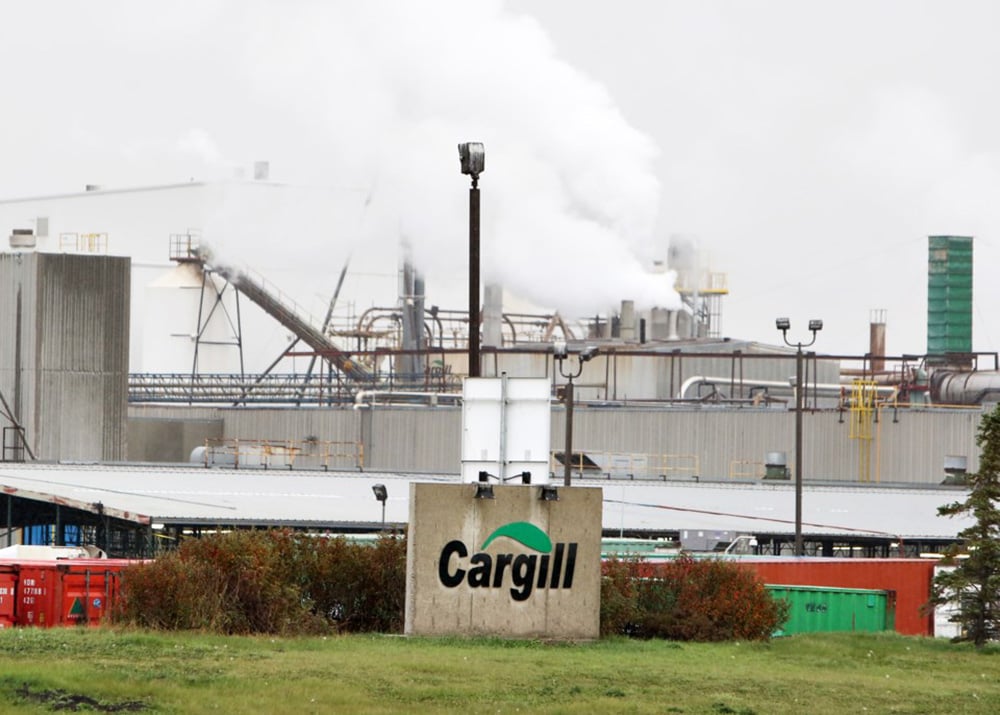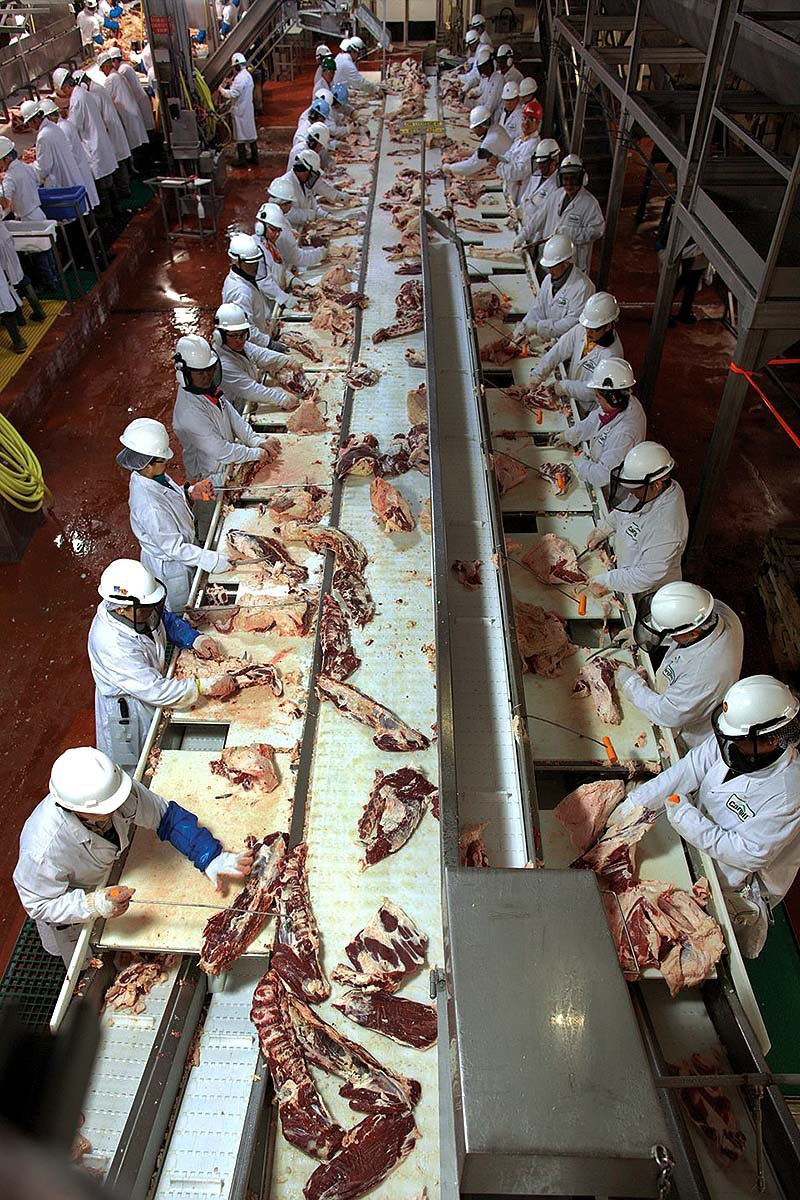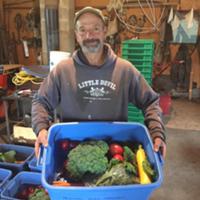Cargill beef-processing plant in High River, Alta. narrowly avoids strike action
Days before planned strike at High River, Alta., facility,
union agrees to new contract
Employees at Cargill's beef-processing plant in High River, Alta., have voted in favour of a new labour contract, narrowly avoiding strike action and a possible lockout.
United Food and Commercial Workers Local 401 (UFCW), which represents workers at the plant, said Saturday that workers chose to accept the new contract offer, with 71 per cent voting in favour.
In a statement, UFCW said it was not an easy decision for staff at the plant, and called the contract vote a "bittersweet victory."
Workers had raised safety concerns after a COVID-19 outbreak at the plant in 2020 affected more than 900 people. The outbreak, which forced Cargill to temporarily close the plant — one of Canada's largest — is linked to three deaths.
The union says the new contract includes procedures to ensure worker health and safety, benefits, and new rights for sick employees.
After the two sides held talks on Tuesday, UFCW's bargaining committee agreed to recommend the new offer to its members, Cargill spokesperson Daniel Sullivan said. Workers voted between Thursday and Saturday.
The union released parts of the proposed offer to CBC earlier in the week. The contract included $4,200 in retroactive pay for many Cargill union members; signing, holiday and COVID-19 bonuses; and a $5 wage increase.
UFCW had said the plant's roughly 2,000 workers would strike Monday unless an agreement was reached.
The union also they brought in tents, floodlights and heaters for the possible strike, while nearby fields were levelled to provide parking.
Cargill had also planned to lock out all UFCW union staff as of 12:01 a.m. Monday, according to a statement from the company's vice-president of labour relations, Tanya Teeter, which was obtained and made public by the union.
"We are pleased to have reached an agreement that is comprehensive, fair, and reflective of their commitment to excellence at Cargill and the critical role they play in feeding families across Canada," Jarrod Gillig, the company's president of business operations and supply chain for North America protein, wrote in a statement to CBC Saturday.
"As an organization that leads with our value to put people first, we truly believe this ratification is in the best interests of our employees and we are eager to move forward to build a stronger future – together."
Reforms still needed: Union
"We also look forward to the citizens of Alberta joining with us in calling for reforms and restructuring in the meatpacking industry," UFCW President Thomas Hesse wrote in a statement Saturday.
"Workers have been ripped off. Ranchers have been ripped off. And we've all been ripped off at the supermarket counter. Government failed to protect these workers, as well as failing to protect Alberta ranchers and consumers. Change must occur."
The Cargill plant processes up to 4,500 head of cattle per day, accounting for about one-third of Canada's beef.
With files from Tony Seskus, Joel Dryden and Reuters
Strike action avoided at Cargill beef plant in High River, Alta.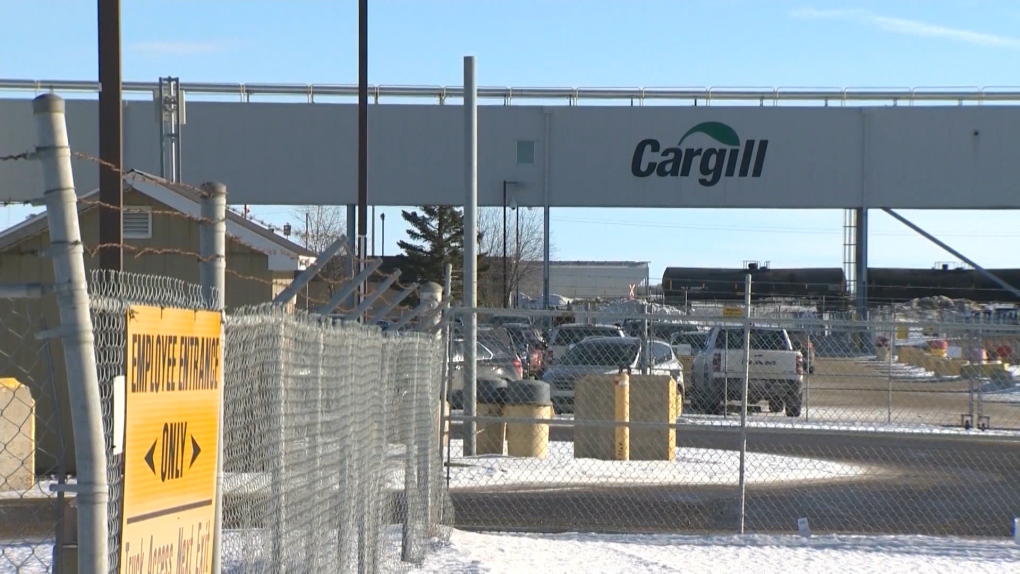
Adam Lachacz
CTVNewsEdmonton.ca
Published Dec. 4, 2021
Cargill workers approved a new contract with 71 per cent support, avoiding a strike or lockout.
After two days of voting, employees at the beef-processing plant in High River, Alta., embraced the new labour contract.
In a statement, the United Food and Commerical Workers (UFCW) Local 401, representing workers at the plant, said on Saturday that it was a "bittersweet victory."
The site, employing about 2,000 people, experienced a COVID-19 outbreak last year that affected more than 900 people and forced Cargill to close the plant temporarily. Three deaths have been linked to the outbreak, including two workers and one family member.
Workers will receive $4,200 in retroactive pay, a $1,000 signing bonus, a 21 per cent wage increase over the life of the contract, and improved health benefits. The company also agreed to provisions to facilitate a new culture of health, safety, dignity, and respect in the workplace.
"Our employees in High River are important to Cargill's work to nourish the world in a safe, responsible and sustainable way," said Jarrod Gillig, Cargill North America's business operations and supply chain president, in a statement to CTV News.
"We are pleased to have reached an agreement that is comprehensive, fair, and reflective of their commitment to excellence at Cargill and the critical role they play in feeding families across Canada."
STRIKE AVERTED
According to UFCW Local 401, the union and workers were ready for a potential strike, erecting tents in front of the plant, installing floodlights and propane heaters, levelling nearby fields to act as parking lots, and finalizing a picketing payroll system.
UFCW Local 401 president Thomas Hesse previously told CTV News that the deal was "fair" but would support workers on the picket line if they decided to reject the offer.
"Tomorrow, work will begin to enforce and apply the new provisions of the Cargill union contract," Hesse said in a statement Saturday. "Local 401 congratulates and thanks Cargill union members and our Cargill Bargaining Committee."
Hesse added that the past few months were trying for many employees at the plant.
MORE WORK TO DO
While the decision was not an easy one and a cause for celebration, UFCW Local 401 says there is further work.
The union says workers at the JBS Plant in Brooks, Alta., observed the Cargill proceedings as they head into bargaining for a new contract next year. Additionally, the UFCW Local 401 says it plans to continue pushing for meatpacking industry reforms and restructuring.
As prices for meat continue to soar at the grocery store, Hesse said more needs to be done to better support workers and ranchers.
"Workers have been ripped off. Ranchers have been ripped off. And we've all been ripped off at the supermarket counter," he said. "Government failed to protect these workers, as well as failing to protect Alberta ranchers and consumers. Change must occur."
With files from CTV News Calgary's Michael Franklin
'We are not afraid': Workers at Cargill's High River, Alta. meat plant vote to strike
Cargill comes to tentative deal with union at High River, Alta. beef plant
Workers at southern Alberta meat-processing plant begin receiving COVID-19 vaccinations
Site of COVID-19 outbreak last year: Vaccination clinic at Alberta beef plant postponed
Cargill donates $125K to social agencies in High River, Alta.

